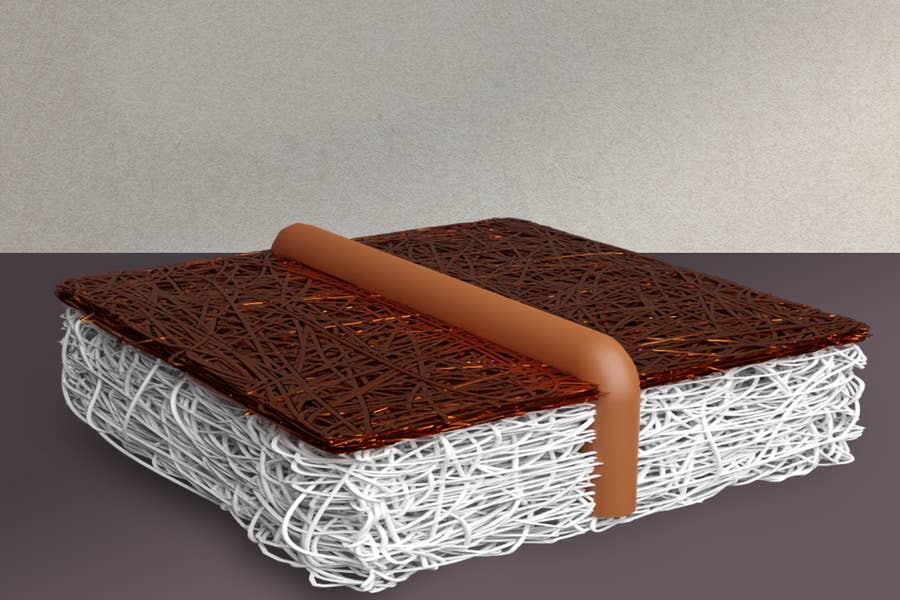These 5 simple brain exercises can significantly improve your memory
Science and research reveal some enlightening insights into memory enhancement and the hurdles we need to overcome.

Science and research reveal some enlightening insights into memory enhancement and the hurdles we need to overcome. (CREDIT: Creative Commons)
The role of memory, intertwined with the very essence of our daily lives, remains pivotal in shaping our experiences. Often, the common refrain, 'Where did I put my keys?' or 'I can't remember that fact for my exam!' underscores the perennial human challenge to optimize recall.
But science and research reveal some enlightening insights into memory enhancement and the hurdles we need to overcome.
1. The Science of Memory: Neuroplasticity at Work
At the heart of understanding memory lies the intriguing concept of neuroplasticity. "Memory is something that can be trained using neuroplasticity, which is the brain's ability to be malleable throughout life," notes Dr. Tara Swart Bieber, an esteemed neuroscientist and medical doctor at MIT.
What is Neuroplasticity? (CREDIT: VeryWell)
This dynamic characteristic enables our brain to reconfigure pathways, forging fresh connections—serving as the bedrock for the neurological processes integral to learning and memory. According to the Queensland Brain Institute in Australia, our ability to remember stems from the reactivation of particular neuronal pathways. Their potency can either amplify or diminish based on their frequency of use.
2. The Intricacies of Associative Memories
Delving deeper into the cognitive mechanisms, one discerns the circuit-based composition of memory. This intricate design facilitates easier recall of memories when assimilated with other stimuli. To illustrate, if a unique perfume aroma reminds you of your mother because she wore it during your childhood, then that scent, even in her absence, triggers her memory.
While it may appear self-evident, leveraging these associative memories is invaluable for imbibing new information. As Dr. Swart Bieber believes, one of the paramount brain exercises to bolster your recall prowess is the memory palace technique or, as it's traditionally known, the method of loci.
3. The Memory Palace Technique: A Deep Dive
This method, gaining popularity through fictional detective Sherlock Holmes, entails visualizing a familiar place—your childhood home, office, or even your school. By charting a route within this locale and selecting distinctive landmarks (like the doormat, a peculiar fruit bowl, or even an eccentric artwork), you pave the way for memory enhancement.
Related Stories
But the real magic unfolds when you correlate specific information to each landmark. For instance, to remember the inaugural three U.S. presidents, you could align 'washing your shoes' on the doormat with 'Washington', the 'fruit bowl' with 'Adams apple', and an unusual 'cat painting' with 'Tom cat, Thomas Jefferson'. While these connections might seem whimsical, they need only resonate with the individual.
Reinforcing these associations by mentally navigating your 'memory palace' amplifies the strength of these bonds, making this technique especially beneficial for memorizing lists or chunks of data.
4. The Key Dilemma: Mindfulness is the Answer
As for those pesky keys that always seem to vanish, Dr. Swart Bieber offers a simplistic solution. "You remember what you pay attention to. Thus, by mindfully concentrating on things you wish to remember and sidestepping potential distractions, you augment your recall ability."
Multitasking can diminish our memory capabilities. (CREDIT: Creative Commons)
5. The Impact of Lifestyle on Memory
While these techniques offer a robust framework, it's imperative to recognize the pivotal role of lifestyle and environmental factors in memory optimization. The perils of multitasking, the strain of stress, the consequences of inadequate sleep, an unhealthy diet, dehydration, and a sedentary lifestyle are all factors that can diminish our memory capabilities.
Highlighting the cornerstones of brain health that propel enhanced memory, Dr. Swart Bieber opines, "The foundations encompass: optimum sleep duration and quality; a nutritious plant-based diet fortified with omega-3 oil; consistent hydration; regular physical activity; and effective stress management."
The road to optimal memory retention lies at the intersection of scientific techniques and a conducive lifestyle. By harnessing the power of neuroplasticity and the method of loci, while also ensuring a balanced lifestyle, we can elevate our recall capabilities and navigate daily challenges with greater efficacy.
Note: Materials provided above by The Brighter Side of News. Content may be edited for style and length.
Like these kind of feel good stories? Get the Brighter Side of News' newsletter.
JJ Shavit



